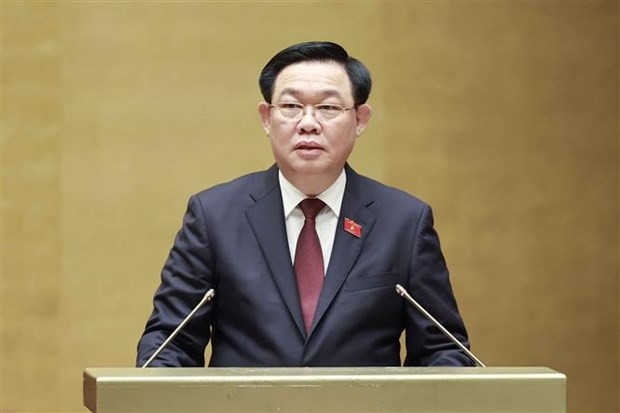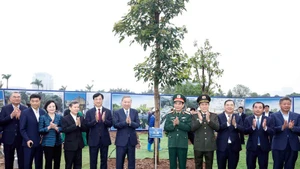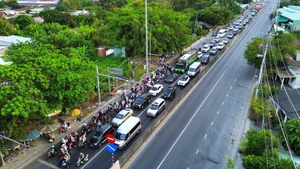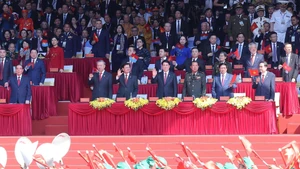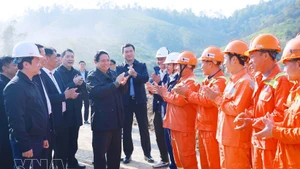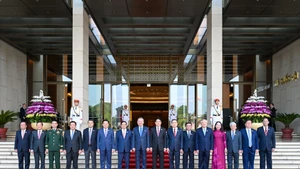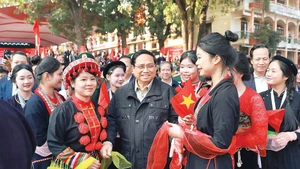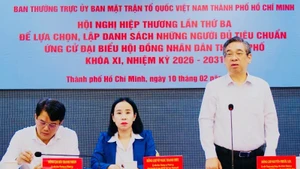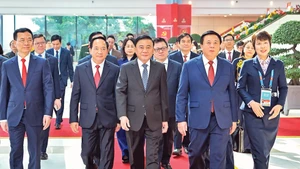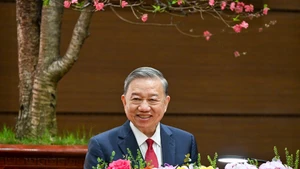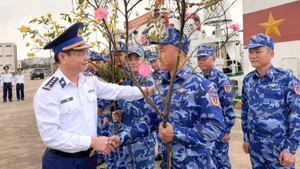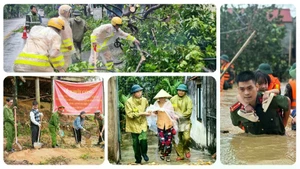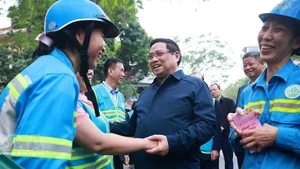The NA leader pointed out limitations to labour and employment, stressing that the scale of vocational training remains small, and its quality and efficiency, especially in high-quality personnel training, is till low.
The COVID-19 pandemic and uncertainties in the global situation have affected about 500,000 labourers in the country, he said, noting there remained issues in social insurance over the past time.
Hue urged the MoLISA to further review and speed up the perfection of institutions on vocational training, and work to raise the efficiency of State management in this regard.
The MoLISA was also asked to coordinate with other ministries and agencies in reforming training programmes and methods, upgrade training equipment, improve the capacity of teachers and managers, and standardise criteria in vocational training, making them match those of developed countries in ASEAN and the world.
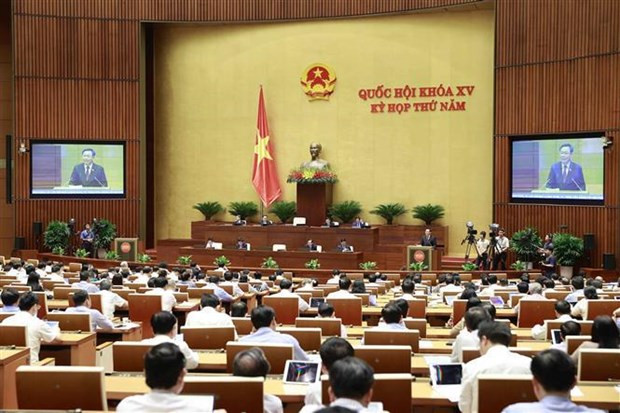 |
| At the NA working session. (Photo: VNA) |
The top legislator also suggested increasing resources and prioritising the State budget to vocational training, improving the efficiency in the use of investment capital, mobilisng the engagement of different economic sectors, and enhancing public-private partnership (PPP) in this field.
It is a must to review, study and propose measures to completely handle the cases of social insurance collection and payment that ran counter to regulations within this year, he requested.
Notably, the NA Chairman asked the MoLISA to partner with other ministries and agencies to accelerate the restructuring of sectors, especially labour-intensive industries like garment-textile and leather-footwear, making them go green, and satisfy requirements of competition and international integration.
At the same time, they need to keep a close watch on developments of the economy and the labour market in order to take timely countermeasures and ensure social welfare, he said.
Hue also stressed that it is necessary to consolidate policies and laws on social insurance, and prepare the dossier of the draft amended Law on Social Insurance, which is expected to be submitted to the legislature’s sixth sitting in October 2023.
The People’s Supreme Court will coordinate with the MoLISA, the Ministry of Public Security and the Vietnam General Confederation of Labour in removing bottlenecks to lawsuits relating to social insurance, he continued.
He also suggested reviewing and amending the Law on Employment to create more job opportunities and prevent unemployment, while building a system of information and data on the labour market.
A total of 99 deputies registered to raise questions at the question and answer session, of whom 35 directly put the questions, and 11 others joined the debate.
